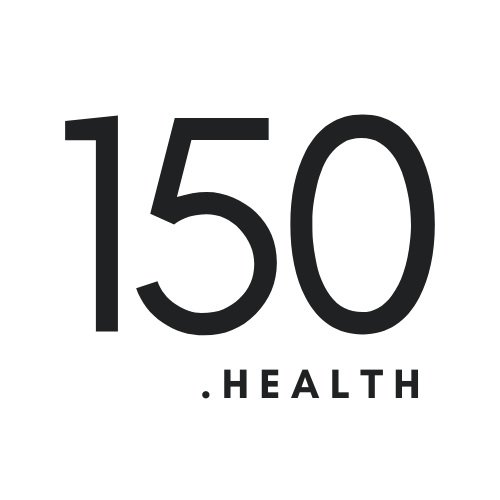Medicine shouldn’t be a bitter pill to swallow
Physicians are like marmite - you either love them or hate them. You may develop ‘acquired taste’ for punchy flavours like marmite, but the same probably cannot be said if you dislike physician visits. To be sure, quite a few people want nothing more than to free-dive to the greatest depths of their physician’s knowledge and capabilities to know what’s going on in the darkest enclaves of their bodies. However, many have an anaphylactic aversion to physicians. Even physicians are often profoundly allergic to each other. Why? There are three main reasons:
1) Doctors are not gods.
Over the centuries, physicians have acquired many superpowers. Most recently, with modern biochemistry and computation, we’ve been filling in Nature’s missing details at an exponential rate. While much remains clouded in mystery, in the scientific method we have a globally accepted, powerful and concise mechanism for studying and describing nature, health and disease. Such tools would have been deemed magic a hundred years ago. A GP armed with a time machine, Google Translate, a PCR machine, MRI and antibiotics or mono-clonal antibodies would indeed be considered god-like in the not so distant past.
And yet, so much of what we can offer is not curative or even delivered on time. Doubt and skepticism pervades. A massive amount of what we do works on an average blended human being, but does it work for you personally? The side effects of medical treatments are often something to be tolerated, not negotiated or even customised. None of this sounds quite as slick as a Star Trek sick bay. Yet physicians' confidence is often born of the feeling that the ceiling of medical knowledge is in their very grey matter. This not not so. Despite this as physicians we often speak without insufficient humility on the gap between our knowledge and the state of art. And the human being in front of us, especially very bright, very well resourced non-physicians, see the gaps as clear as day. The cognitive dissonance actuates allergy.
2) Most of medicine is a horribly bitter pill to swallow.
Ever wondered why actual pills are difficult to peel out of their packaging and taste horrid? It’s mainly to stop accidents with kids. Most medicine does not feel like something we look forward to. It is not made to be enjoyed. Aspects common in products and services we 'consume' like customer experience and community are afterthoughts in medicine. Designing 'Medicine X’ is a project that would require someone like Sir Jony Ive to get right. Apple’s Chief Design Officer. till 2020, famously turned business computing necessities into lifestyle objects of desire. It was this design philosophy that changed the world for the better. Medicine must go through the same transformation.
3) Physicians negate negatives. They don’t augment awesomeness.
Human life is awesome. Even non-geeks cannot fail to be fascinated by how we come from two half pairs of molecular string into 30 trillion cells, interconnected in the most mind boggling way, with a boggled mind that is more magnificently complex and conscious than all the unconnected atoms in the entire universe. Yet most physicians are either too overwhelmed or not properly trained to spend time making the lives of the fantastic beasts sitting in front of them more awesome. Pathology, sadness, illness, disease, depression, injury, accident and pain are all part of nature and keep us up to our eyeballs in work. But what if we were to sit back and look at the physiological and cognitive marvel that most of us are? What if we were to rethink the definition of a physician as someone who helps human beings to flourish. We have been ghostbusters, soothsayers, priests. We are now diagnosers, prognostications and prescribers (and billing machines). In the future, we should also be health and human performance coaches.
When I was in medical school, I had barely two hours of sleep a day, little exercise, and zero meditation time. By way of lectures that is. That was over twenty-five years ago. Little has changed. The lectures I attended said nothing of the science of human health and performance, and yet these are things that can help us live our best and healthiest lives. These sentences may taste like marmite to many of the medics reading. It’s a whole world of less trodden clinical paths. It’s fluffier, there’s less evidence, and dealing with long term-behaviour change is hard.
Despite the challenges and a generation of new medical training and incentives needed, performance medicine is not rocket science. In fact, the world may be a better place if people start eating, moving, sleeping and thinking better.
Your team of physicians, physiologists, psychologists and health coaches of the near-future will still screen for scary things, treat things before they get bad, and manage matters when what comes out of one of those enclaves your body hits the fan. Good. Box ticked. But our highest and best purpose is to go together on a life-long expedition of improving our health and ourselves. A positive, hard, but rewarding journey of getting ever improving health metric scores, having more energy and calm, feeling beyond better, setting ourselves on a trajectory to experience more of life. I want my physicians to have my back, to augment my awesomeness. I want physicians who would consider it medical negligence to not prescribe for eudaimonia, the state of human flourishing. Now, that’s something I’d look forward to spreading on my toast every single day.

